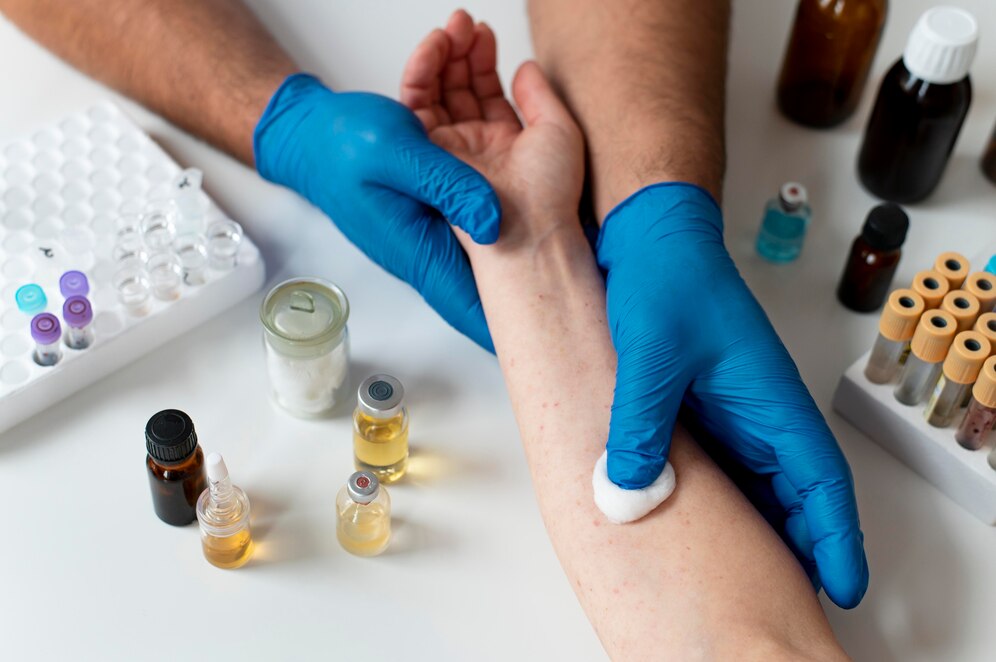Looking after wounds appropriately is very essential. It assists to avoid contamination and speeds up recovery. Even minor injuries require concentration. With no appropriate attention, they may turn severe. Follow these actions to look out for any wound.
1. Wash Your Hands First:
Every time you wash your hands before touching a wound. Utilize detergent and warm water. Rub your hands for at least 20 seconds. Wash in good form and dry out with a neat cloth or tissue. This helps prevent bacteria from moving in the wound.
2. Stop the Bleeding:
If the wound is bleeding, employ moderate compression. Use a clean cloth or bandage. Hold it for a few minutes until the bleeding slows down. If bleeding continues, keep applying pressure. For deep wounds, elevate the injured area.
3. Clean the wound:
When the bleeding ends, wash the wound with fresh water. Do not utilize hydrogen peroxide or spirits. They may harm the tissue. Instead, use mild soap and water. Pat the area dry with a clean cloth. Remove any dirt or debris carefully.
4. Apply an antibiotic:
After cleaning, apply an antibiotic ointment. This helps prevent infection. Use a thin layer and avoid touching the tube to the wound. If you don’t have ointment, honey can also help. Honey has natural antibacterial properties.
5. Cover the wound:
Cover the wound with a dressing. This keeps it safe from dust and bacteria. Change the dressing every day or when it gets unclean or wet. If the wound is slight, you might put it open to air. For big injuries, keep them protected to prevent infections.
6. Keep the wound dry.
Try to keep the wound dry. If it gets misty, change the dressing instantly. Wetness may delay the recovery process and cause impurity. While bathing, cover the wound with a waterproof binding. Pat the area dry gently if it gets wet.
7. Avoid touching the wound:
Do not rub or pick at the wound. This can reopen it and cause scarring. Allow the wound to recover naturally. Itching is common, although stay away from touching it. Try using a cold compress if the itching is severe.
8. Watch for signs of infection:
Check the wound daily. View for redness, puffiness, pus, or a bad smell. If you see any of these, visit a physician. Infection can spread and become serious. . Discomfort that gets harmful instead of improved is another indication.
9. Eat Healthy Foods:
Eating healthy supports your body’s recovery earlier. Have a diet rich in vitamins, like fruits, vegetables, and proteins. Vitamin C and zinc aid in wound recovery. Drink lots of water to remain hydrated. Keep away from fast food and sweet beverages.
10. Rest and Take Care:
Resting helps your body heal. Avoid too much movement if the wound is in a sensitive area. Overuse can slow down recovery. If the lesion is deep or critical, visit a physician instantly. Having a rest also assists to decrease pressure, which helps curing.
11. Use Aloe Vera for Healing:
Aloe vera is very great for lacerations. It relieves and speeds up curing. Use new aloe gel to the wound a small number of times a day. It also assists in decreasing pain and redness. Aloe vera keeps the lesion hydrated.
12. Avoid Smoking and Alcohol:
Smoking and alcohol slow down the recovery process of wounds. They reduce blood flow and weaken the immune system. Avoid them while your wound is healing. Your body needs proper oxygen and nutrients to repair the skin.
13. Change Dressings Properly:
When changing a bandage, do it carefully. Wash your hands first. Remove the old dressing gently. Neat the wound another time before putting on a new dressing. Utilize germ-free ingredients to avoid contamination. If the dressing sticks, moisten it before removal.
14. Elevate the Wound:
If your cut is on a leg or arm, try to keep it moving up. This lessens puffiness and increases blood circulation. Prop it up with a pillow when resting. Elevation also helps reduce pain and throbbing sensations.
15. Avoid Using Too Many Products:
Do not use too many creams or ointments. They can make the wound too moist. Use only what is needed for protection and healing. Too much moisture can cause skin breakdown.
16. Stay Active but Be Careful:
Light activity helps blood circulation. But avoid putting pressure on the wound. Do not stretch or strain the area. Gentle movement can help prevent stiffness. However, overuse may delay healing.
17. Avoid Sun Exposure:
Too much sun may harm recovery skin. Cover the wound with a dress or a bandage while going outdoors. Utilize sunscreen on healthy wounds to avoid dark marks.
Conclusion:
Healing takes time. Some wounds heal faster than others. Follow these steps daily, and your wound will improve soon. Do not rush the process. Your body needs time to repair itself.
By following these simple tips, you can take care of wounds effectively. Proper care prevents infection and speeds up healing. If you need expert wound care urgent care, don’t hesitate to seek professional help. Stay safe and healthy! To schedule your appointment with the highest standard of care and visit Sahara West Urgent Care, visit our website.



